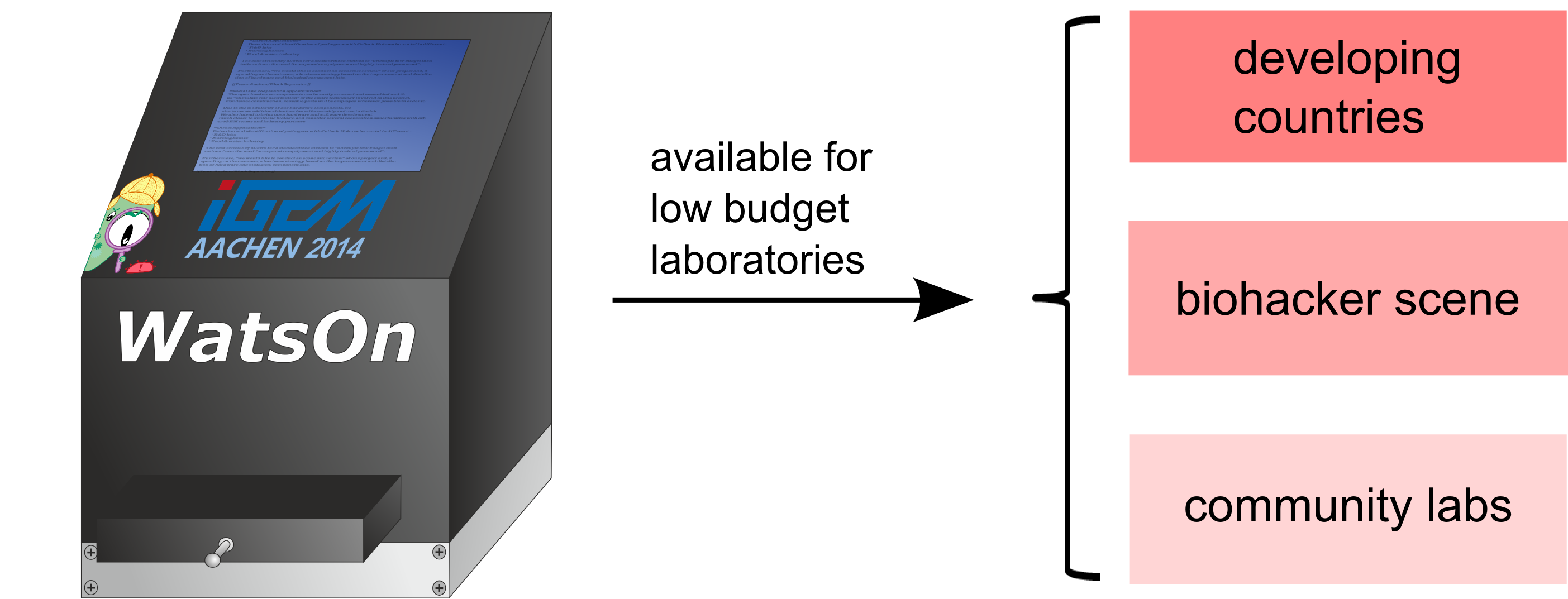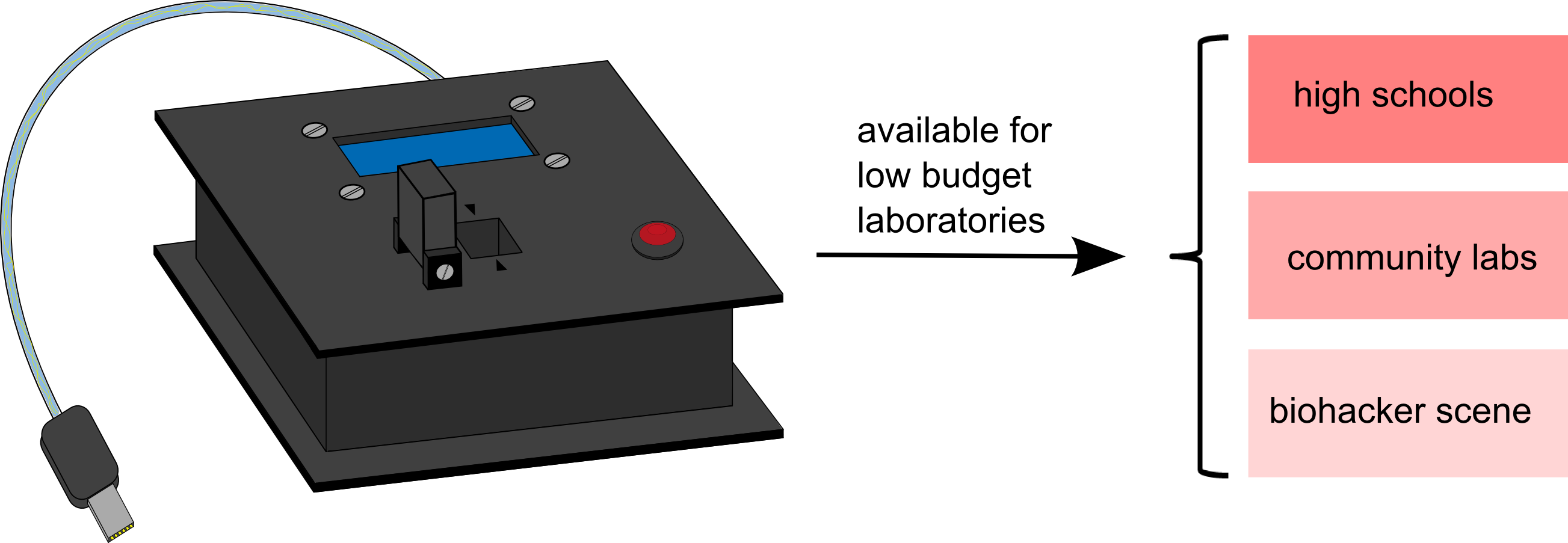Economical View
The economical considerations regarding our project were carried out according to the motto:
Make the world a better place - Open access for scientific progress
In the center of every economic analysis are the customers and their needs and desires. Every commercial company is interested to satisfy and deal with all customer needs for better sales figures, and in order to maintain regular clientele. Both measures aim for higher financial profits. On the global seller’s market of technical laboratory equipment there is a permanent competition between the existing providers. This competition depends on the technical improvement followed by price wars. Always high price/performance ratios are catching customer and influence the buying decision.
Take a look at cost calculations for technical equipment including development, production, transport, warehousing and sale. Usually, you will find low material costs but really high personnel, transport and warehousing costs. At least financial corporate profit is a big cost point. In general, these factors are making technical equipment for labs really expensive.
We follow a strategy to circumvent unnecessary costs for customers by realizing a social vision. In accordance with the principle of open hardware including open source, information where to get the necessary components, quantities, a step-by-step technical construction manual and circuit diagrams could be published online for free. So our profit is not of financial nature but is instead based on recognition and on motivating other iGEM teams and companies to spread the idea of open hardware, too. At least we want to mention that our vision is limited in getting acceptance by companies on the global seller market . These companies, parts of them global players, are profit orientated. Our vision is standing against this as non-profit-idea finding acceptance in other groups of customers.
|
 "
"

